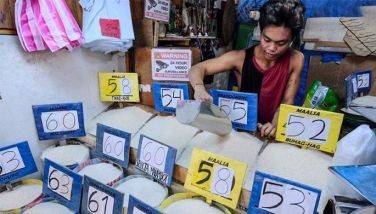Travel freedom

If the Philippines ranks 74th in terms of travel freedom or global mobility, then what does that say about us?
The Philippines moved one spot up from its 75th ranking in the January index.
According to the 2025 Henley Passport Index as of April, which ranks all the world’s 199 passports according to the number of destinations they can access visa-free, Singapore reclaims its crown as the most powerful passport in the world, with visa-free access to 193 destinations followed by Japan and South Korea which are tied at third, with visa-free access to 190 destinations.
On third spot are Denmark, Finland, France, Germany, Ireland, Italy, and Spain which can access 189 countries and territories visa-free while fourth place includes Austria, Belgium, Luxembourg, the Netherlands, Norway, Portugal, and Sweden (188 destinations). Fifth spot goes to Greece, New Zealand, and Switzerland (187) while in sixth place are Australia and United Kingdom (186).
In seventh place are Canada, Czechia, Hungary, Malta and Poland (185) while Estonia and the United Arab Emirates are eight (184). Ninth place went to Croatia, Latvia, Slovakia, Slovenia, and the United States (183 visa-free destinations) while the 10th spot went to Iceland and Lithuania (182).
China is at 61th spot with 83 visa-free destinations.
Among the ASEAN countries, Singapore is high up on the list with a world ranking of number one while Malaysia placed high in the global mobility index at 11th with visa-free access to 181 destinations. Brunei Darussalam is at 18th place (164), Thailand at 63rd place (80), Indonesia at 68th spot (73), Philippines 74th place (65), Cambodia at 86th (52), Vietnam at 87th (51), Laos at 90th (48) and Myanmar at 92nd place (45th).
Syria and Afghanistan occupied the last two spots in the global ranking at 102nd and 103rd place with visa-free access to 27 and 25 destinations, respectively.
The visa-free access destinations for Philippine passport holders based on the January 2025 Henley Passport Index are Brunei, Laos, Nepal, Timor-Leste, Cambodia, Macao, Singapore, Vietnam, Hongkong, Malaysia, Sri Lanka, Indonesia, Maldives, Taiwan, Kazakhstan, Mongolia, Tajikistan, Kyrygyzstan, Myanmar and Thailand all in Asia.
Filipinos can enter visa-free to destinations in Africa that include Burundi, Ethiopia, Morocco, Senegal, Cape Verde Islands, Guinea-Bissau, Mozambique, Somalia, Comoro Islands, Madagascar, Kenya, Tanzania, Cote d’Ivoire, Malawi, Rwanda, The Gambia, Djibouti, Mauritius and Seychelles.
Visa-free access is also given to Filipinos in the Oceania (Cook Islands, Marshall Islands, Palau Islands, Vanuatu, Fiji, Micronesia, Samoa, Kiribati, Nieu, Tuvalu; in destinations in the Americas that include Bolivia, Colombia, Nicaragua, Suriname, Brazil, Costa Rica, and Peru; in the Carribean (Barbados, Haiti, St. Vincent and the Grenadines, Dominica, Sta. Lucia and Trinidad and Tobago); and in the Middle East in countries like Iran, Israel and the Palestinian territory.
The Philippines is also benefitting from Taiwan’s trial visa-free entry program for certain countries up to July 31, 2025.
The country also lacks visa-free entry to destinations in Europe, unlike Singapore, Brunei, and Malaysia which rank higher in the index and have better visa-free access.
In another report also by Henley, it is said that the poorest individuals face the greatest difficulties when seeking to travel or move to more prosperous countries, not to mention discriminatory policies based on identity and culture.
In a paper from the Journal of Public Affairs published last year, it was explained that the relationship between migration, citizenship, and threat is complex, as the perception of migrants as a potential threat to national security influences debates and policies related to citizenship acquisition, border control, and immigration regulations, thereby shaping migrants’ experiences and opportunities in receiving countries.
Restricting or monitoring entry is the most effective technique for states to avoid making potentially costly commitments to foreigners and that passport and visa controls are important procedures to achieve this goal as they act as the first line of defense against the entry of undesirables, it added.
Among those who suffer from this lack of global mobility among Filipinos are businessmen and athletes, whose international schedules would often require them to secure visas on short notice.
Female professional golfer Yuka Saso for instance, whose father is Japanese and whose mother is Filipino, chose Japanese citizenship because of the various benefits of the Japanese passport, including visa-free travel to 190 countries. Japanese law does not allow dual citizenship beyond 22 years old. Saso now carries the Japanese flag in international competitions, and was part of the Japanese women’s golf team in the Paris Olympics. Such a huge loss for Philippine sports. She just won her second US Women’s Open title last year.
And then just recently, Filipino tennis star Alex Eala, who gained international prominence when she entered the semifinals of the Miami Open and is now number 73 in the world, opened up about the challenges of holding a Philippine passport when applying for visas to compete in international tournaments.
Eala shared that securing travel documents for visa requirements, especially for last-minute tennis tournaments, is part of her struggles as a Filipino athlete.
Securing a visa from the United States and the European Union countries probably pose the biggest challenge.
I’m not even mentioning the cost of visa applications in the Philippines.
Before one is issued a visa by most countries, they try to make sure that you will return to the Philippines and not overstay or at worse, not go back.
Can we blame them? According to one report, there are about 271,000 undocumented Filipinos in the US alone, and they are now facing deportation in the wake of US President Donald Trump’s crackdown on illegal immigrants. They can become a financial burden, stealing jobs from Americans, and may even become a threat to US national security.
Even if one has a valid visa, there are even those who even experience discrimination at the foreign immigration counters, being subjected to shameful questioning and treatment by immigration officials.
Why some Filipinos do not want to come back to the Philippines is of course because of the promise of a better life abroad.
Because the problem of a weak Philippine passport is tied to our economic situation and real experiences of foreign nations in connection with TNTs or tago ng tago, then there’s nothing that our government can do. In the same way that it is our sovereign right to prevent undesirables from entering our borders, it is also theirs.
Pack and go is something that will probably remain a pipedream for Filipinos.
For comments, email at maryannreyesphilstar@gmail.com
- Latest
- Trending
























